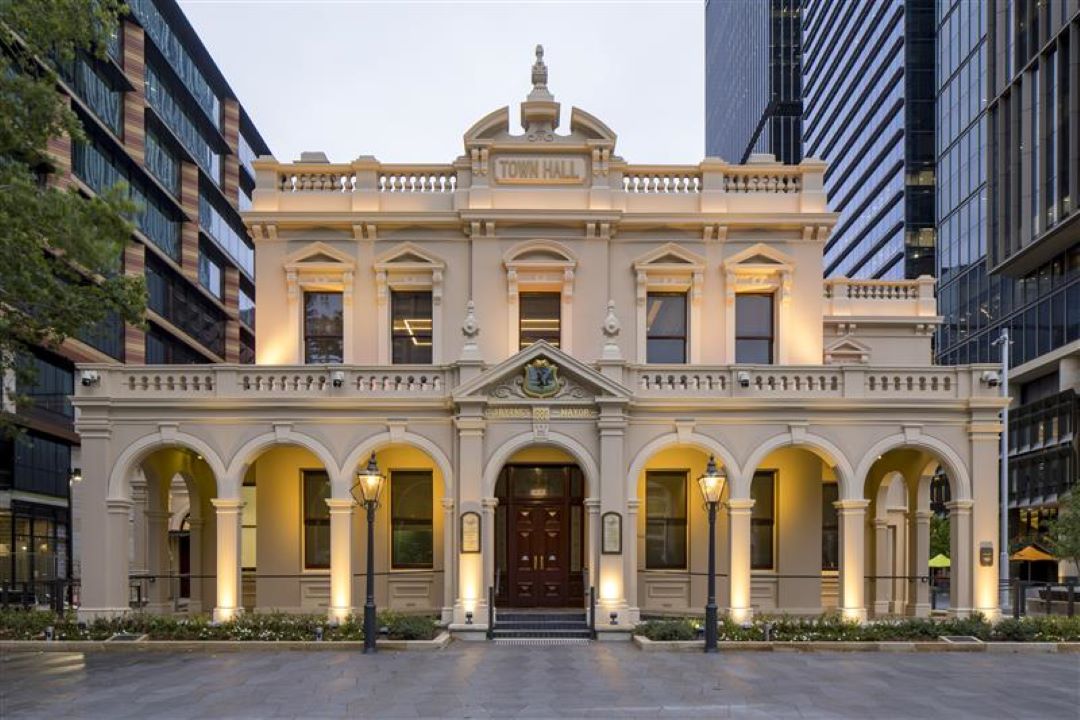Project Update – August 2024
Following the completion of Stage 1 capping works earlier this year, design work is now well underway to develop plans for capping required to completed treatment at this site.
Stage 1 works (completed in May 2024) included the capping of the upper embankment, located between the track and the rear fences of a number of properties, and the permanent capping of the track itself.
Stage 2 works will result in the capping of affected areas of the lower embankment.
To inform the development of an appropriate design, further studies may be undertaken, including geotechnical, ecological, and arboricultural assessments of the site. Should the completion of these studies affect access to the track, further information will be provided about detours on this page, the community will be notified and on-site signage will be installed.
Project Updates (Back to top)
-
Stage 1 Permanent Capping Works – January – Mid March 2024
Following the completion of design works, Stage 1 capping construction works are now scheduled to commence in January, and expected to be completed by early to mid March, weather permitting.
Stage 1 works will include:
- Retaining wall construction, including gabion retaining walls in some areas, and a concrete sleeper wall in others;
- Installation of drainage to service the cap;
- Installation of a geotextile marker layer over contaminated soils;
- Introduction of clean soils as capping;
- Installation of erosion control cells;
- Planting of native grasses and ground covers;
- Reinforcement of the existing access track
In order to facilitate construction, up to four trees growing within the contaminated upper embankment will need to be removed as part of the works. This includes the removal of invasive ailanthus altissima, more commonly known as “tree of heaven”, which is considered a weed species within the bushland. A qualified ecologist has been engaged to oversee this process, and has inspected the embankment for evidence of animal habitat. None of the trees to be removed were identified as habitat trees.
Following completion of works, contractors will visit the site regularly to water and maintain new plants for up to 12 weeks.
Safety during works
All appropriate safety controls and precautions will be in place during works, including:
- Asbestos air quality monitoring during any works with the potential to disturb contaminated soils;
- Use of appropriate personal protective equipment by workers, including respiratory PPE, hardhats, closed footwear, etc.;
- The provision of personal decontamination facilities for workers potentially dealing with contaminated soils;
- The creation of exclusion zones to protect members of the public from machinery and any works with the potential to disturb contaminated soils;
- Oversight of works by a licensed asbestos assessor during works with the potential to disturb contaminated soils;
The affected area of the track will be closed to the public for the entire period of works. Pedestrian detour signage will be in place to direct walkers to alternative routes through the bushland.
Why do trees need to be removed as part of the works?
Trees generally require a consistent supply of oxygen and nutrients to their root zones for ongoing good health. When the materials needed to cap contamination, like soil or clay, are built up around the tree’s base and within its root zone, they can block access to oxygen and nutrients. When this happens, many tree species will slowly die, increasing the risk of dropping branches, and creating the risk that a tree may fall and tear through a capping layer - exposing contaminated soils below and creating an emergency situation.
On flatter sites, alternative capping approaches can sometimes be adopted to minimise the impact capping can have on tree health. These approaches generally involve the use of mulch and ‘tree snorkels’, and have been adopted at other sites around Parramatta when possible (e.g. mulch and terramat has been used at Dundas Park; and a terramat, mulch and tree snorkel approach was recently implemented to protect figs at Experiment Farm Reserve). The success of this approach depends largely on the species of tree involved and its capacity to deal with adverse conditions.
The sloping nature of this site, high erosion risk, and the close proximity to houses, makes these capping approaches inappropriate for this site. To ensure the ongoing safety of visitors to the reserve, and those who live near it, up to four trees within the works area will be cut to ground level, and if appropriate, felled trees left in appropriate locations within the bushland for use as habitat for lizards and ground dwelling animals.
-
Council has now engaged an appropriately qualified contractor to manage the design and construction of the first stage of works to install a permanent capping layer in the affected areas of the site.
Stage 1 will see the design and construction of a permanent cap over the track itself, and the embankment between the track and rear property boundaries. Stage 2 works, which will treat the embankment area below the track, are currently undergoing design planning by Council’s Landscape Architecture team.
To inform the design of the Stage 1 cap, contractors will undertake survey work, and geotechnical investigations within the coming weeks. During these works, parts of the track will need to be closed to allow clear access for workers and their equipment. Closed areas will reopen again once investigations are complete, and a safety inspection confirms the track is suitable for visitors. Detour signage will be in place to direct track visitors to alternative routes.
Workers will wear PPE that is appropriate for their activities, in accordance with NSW SafeWork requirements. Air quality monitoring will be carried out during any works that involve disturbance of the soil to verify the effectiveness of the safety controls in place. Fencing and barricades will be in place to ensure that visitors to the reserve maintain a safe distance from the works area.
Further information will be provided about construction dates and further track closures as soon as it becomes available.
-
Excelsior Reserve declared a James Hardie Legacy Site
In August 2020, City of Parramatta engaged specialist consultants to undertake soil testing within an area of Excelsior Reserve (also known as Excelsior Park or Darling Mills Creek Reserve), adjacent to a section of the Murri-Yanna walking track, North Rocks. Asbestos containing materials were discovered below the surface of the bushland reserve.
While air-monitoring undertaken during the investigations showed there was no immediate risk to the public, taking precautionary action Council closed the site to prevent soil disturbance and ensure the site remained safe.
Council and specialist consultants have continued investigating potential contamination at Excelsior Reserve North Rocks engaging with the Environment Protection Authority (EPA) to reassess the site and the surrounding areas.
For some years, the EPA and City of Parramatta Council have worked closely to identify and assess potential legacy fill sites based on available historical records and multiple lines of evidence. Investigations intensified following the release of a 2010 report prepared by the then Department of Environment, Climate Change and Water titled James Hardie Asbestos Waste Contamination Legacy, Summary Project Report.
New Site 52 – Excelsior Reserve, North Rocks
The EPA has undertaken a review of the area known as Excelsior Reserve, North Rocks. The review included historical aerial photos, anecdotal evidence from community members and results of Council’s own investigations in 2020.
These multiple lines of evidence conclude that part of Excelsior Reserve may be affected by legacy asbestos filling associated with James Hardie.
Council will continue to plan for the remediation of Council-owned lands within Excelsior Reserve, with work expected to continue throughout 2021. Council will continue to advise the community on the progress of this work with the usual letters, signage and website updates.
Where the EPA identifies the potential for adjoining residential properties to be affected by legacy asbestos filling, EPA officers will contact residents directly.
For general information on remediation at Excelsior Reserve, please call Council’s Customer Contact Centre on 1300 617 058, or email council@cityofparramatta.nsw.gov.au
-
Interim treatment works – two stages of work starting 17 May 2021
Additional temporary works have been scheduled at Excelsior Reserve to ensure asbestos materials remain safely buried.
Starting Monday 17 May 2021, these works include the installation of additional safety fencing, and the laying of stabilised crushed sandstone over affected areas of the access trail, specifically those areas that have already been treated with geotextiles. This work will ensure that vehicles can safely use the service trail in the event of an emergency, or should urgent maintenance be needed in the area.
The work program
The work will occur in two stages. The first stage (17 May) will involve the installation of additional fencing, between the service trail and the lower embankment, and repair of the existing geotextile.
The second stage (approx. start date Wednesday 19 May) will involve the delivery and installation of a 100mm thick layer of crushed sandstone over areas of the service trail. The crushed sandstone will help stabilise the track for vehicles and will also offer a more robust interim cap over affected soils.
All work is expected to be complete in one week (weather and site conditions permitting).
Health and safety
All appropriate safety protocols including air-quality monitoring will be undertaken during the works, and protective equipment appropriate for each stage of works will be worn by all workers, in accordance with NSW SafeWork requirements.
More information
Contact City of Parramatta’s Excelsior Reserve project team on 1300 617 058, or by email at openspace@cityofparramatta.nsw.gov.au
If you have accessibility concerns, please contact the National Relay Service at relayservice.gov.au and provide them with the City of Parramatta contact number: (02) 9806 5050.
For general enquiries about asbestos, please contact the state asbestos hotline on 1800 272 378.
-
Why are parts of Excelsior Reserve closed?
In August 2020, City of Parramatta engaged specialist consultants to undertake soil testing within the Excelsior Reserve, North Rocks. Asbestos containing materials were discovered below the surface of the reserve.
While air-monitoring undertaken during the investigations showed there was no immediate risk to the public, taking precautionary action Council closed the site to prevent soil disturbance and ensure the site remained safe.
In November 2020, consultants were engaged to conduct further soil testing and provide specialist advice to Council.
While there was no detection of airborne fibres during soil testing Council is taking specialist advice for interim and long-term remediation. Council is also consulting with NSW WorkSafe and NSW Environmental Protection Agency and will undertake regular inspections and implement air fibre monitoring around the embankment, to ensure that the area remains safe.
Test results
Laboratory analysis of the samples collected during testing found that asbestos containing materials, including fibro and friable asbestos (the waste by-product of manufacturing) were present within the top 100mm of the soil and exceeded the acceptable limits for open space and parks.
Friable asbestos material found in the bushland consisted of loose fibres of asbestos containing material/product that could be reduced to a powder if crumbled or crushed by hand.
How will these sites be managed?
NSW Health advises that asbestos presents a risk when fibres become airborne and can be inhaled.
While there was no detection of airborne fibres during soil testing Council is taking specialist advice for interim and long-term remediation. Council is also consulting with NSW WorkSafe and NSW Environmental Protection Agency.
Council staff and consultants will undertake regular inspections and implement air fibre monitoring around the embankment, to ensure that the area remains safe.
An environmental management plan will be prepared for managing the asbestos contamination on site. The plan will detail how workplace health and safety measures will be implemented on site.
What are the next steps?
Parts of Excelsior Reserve will remain closed. The City of Parramatta will take immediate action to improve site safety while planning for long-term remediation begins.
Council will implement additional measures to improve site security including the installation of 2.1m high chain-wire fencing and signage which complies with NSW WorkSafe requirements.
A geofabric layer to cover the site will be installed on the Service Trail and embankment to prevent the exposure of potentially contaminated material. Sediment fencing to contain soil disturbance will be installed within the bushland area.
A remediation plan for the embankment, Service Trail and bushland will be created.
Council will continue to provide updates on the progress of these actions on its website.
Who can I contact for more information?
For information about the test results and ongoing work, please contact Council’s Excelsior Reserve project team on 1300 617 058, or by email at naturalresources@cityofparramatta.nsw.gov.au
If you have accessibility concerns, please contact the National Relay Service at relayservice.gov.au and provide them with the City of Parramatta contact number: (02) 9806 5050.
For general enquiries about asbestos, please contact the state asbestos hotline on 1800 272 378.


